20+ Sample Work Contracts
-
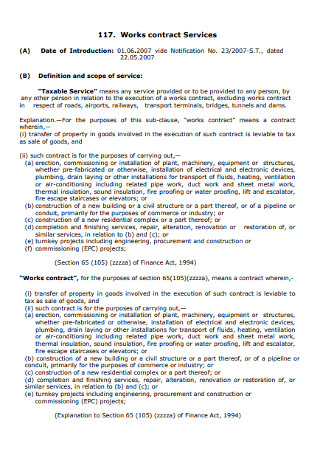
Work Service Contract
download now -
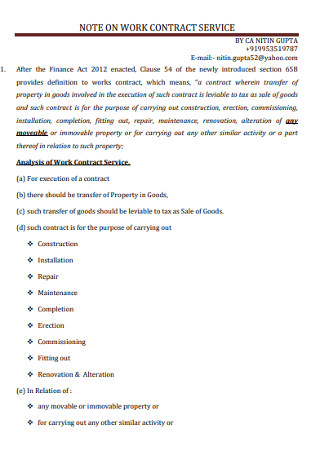
Note of Work Contract Service
download now -
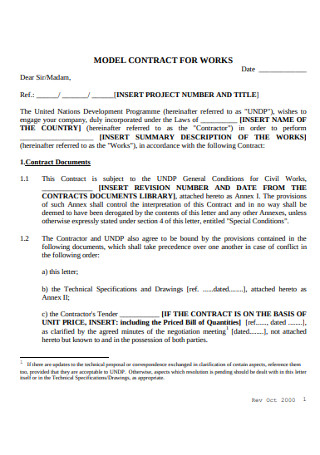
Model Contract for Work
download now -
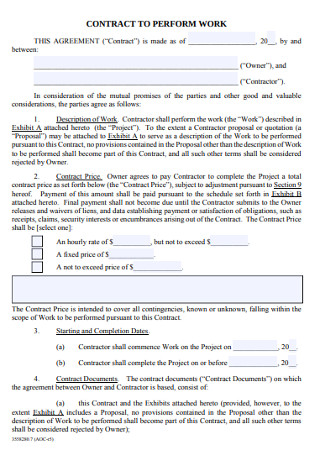
Contract to Perform Work
download now -
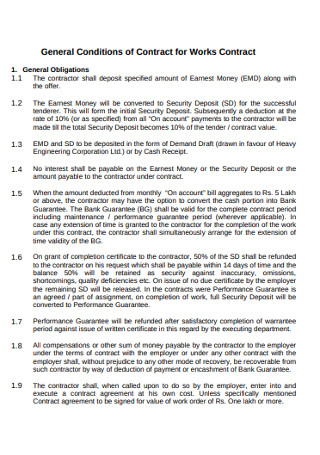
General Work Contract
download now -
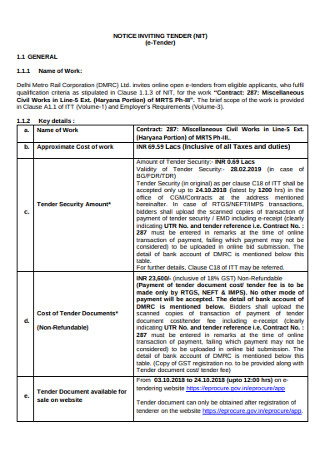
Civil Work Contract
download now -
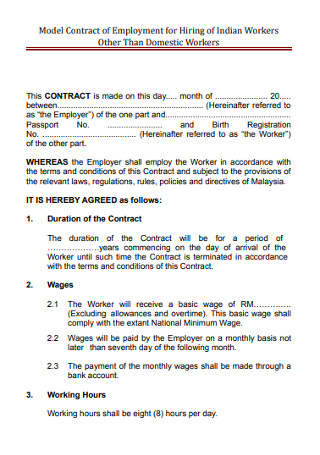
Employment Work Contract
download now -

Sample Work Contract
download now -
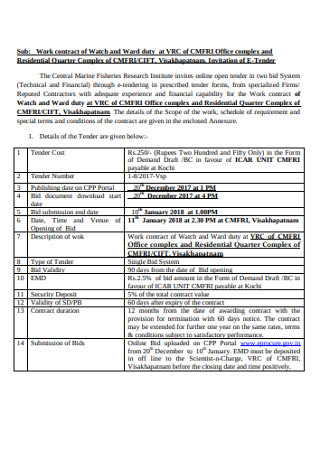
Basic Work Contract
download now -
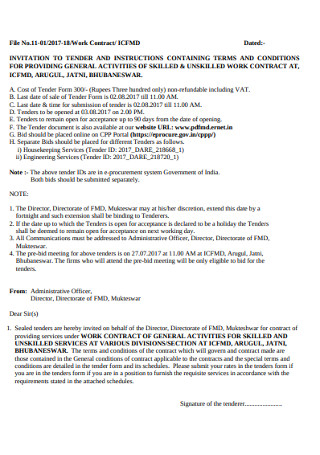
Standard Work Contract
download now -
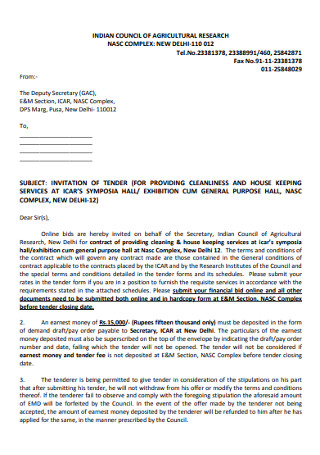
Job Service Work Contract
download now -
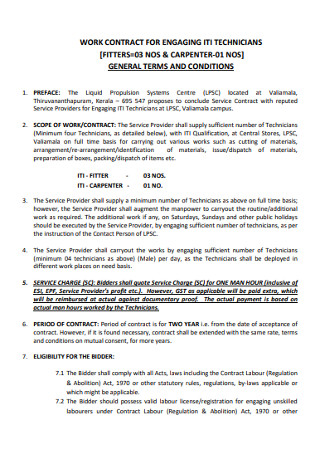
Technicians Work Contract
download now -
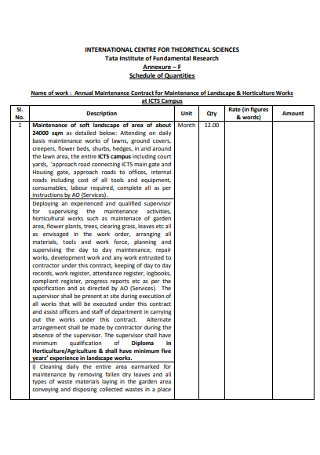
Annual Maintanance Work Contract
download now -
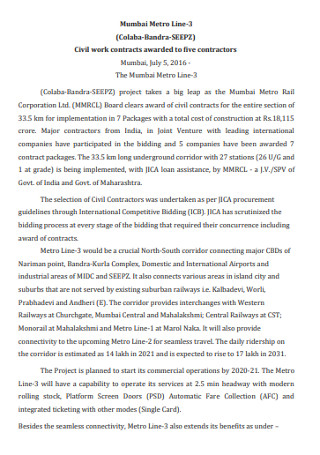
Civil Work Contractor Contracts
download now -
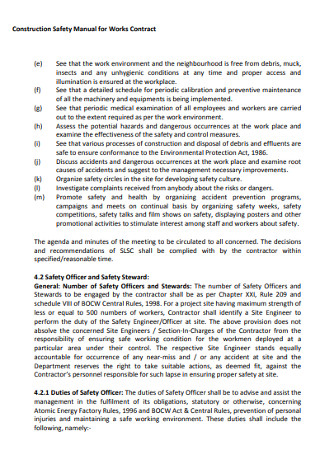
Construction Safety Manual for Works Contract
download now -

Final Civil Work Contract for Metro Line
download now -
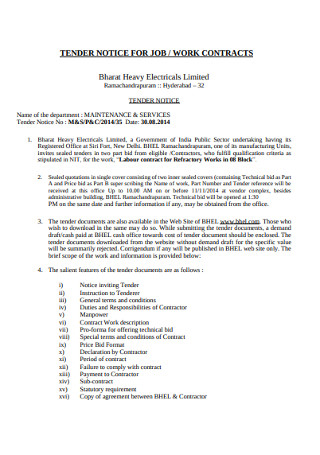
Tender Notice for Work Contract
download now -
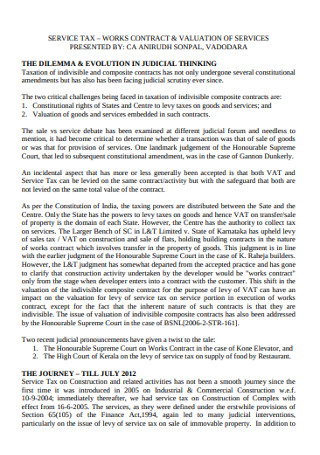
Service Tax Work Contract
download now -
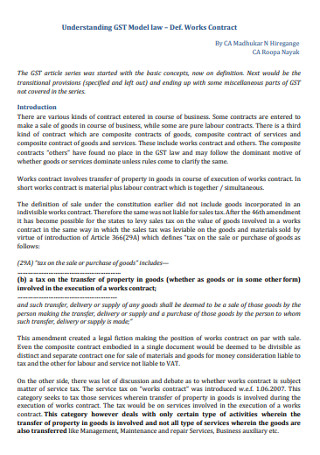
Model Law Work Contract
download now -
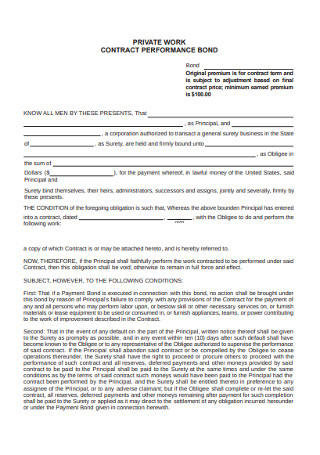
Private Work Contract
download now -
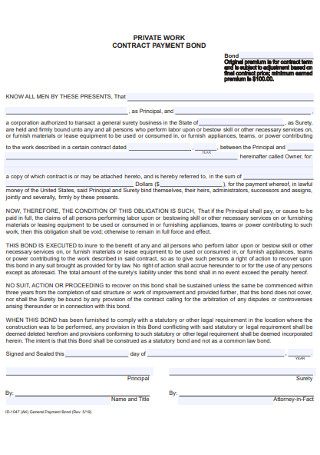
Work Contract Payment Bond
download now -
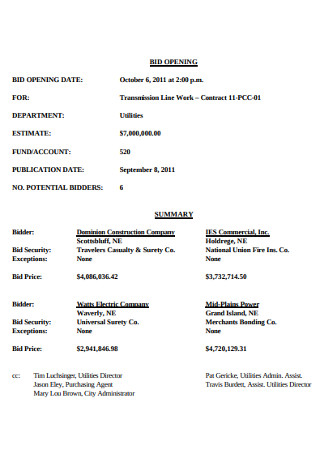
Transmission Line Work Contract
download now -
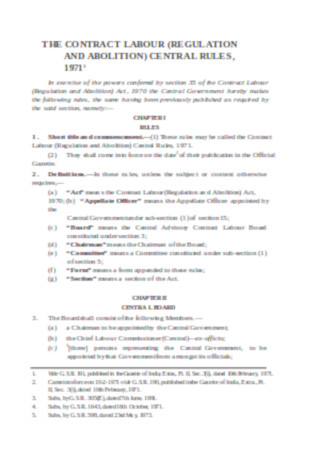
Sample Work Labor Contract Template
download now
What Is a Client Contract?
A client contract is a document that states the formal agreement between a business and its clients, which outlines the business’ terms and conditions in providing its clients with products and services. This is an important part in starting any transaction. This contract helps in giving a clear definition of both party’s roles in the deal as well as their corresponding liabilities should one of them breach the scope of the agreement.
It’s one thing to assure your clients with potent satisfaction; it’s a whole new level when you make your dealings official. A service contract solidifies your transaction and sets compensation when a clause is violated. This also safeguards your business as it incurs legal actions when the client fails to carry out his end of the bargain.
The contents of a client contract depend heavily on the type of business you’re handling and what goods or services are your clients demanding from you. In general, a client contract contains the following key terms:
1. Service Description
The description should state the definition and the scope of service that the clients expect to receive from a provider. This needs to be written in a manner that’s understandable with all the necessary details because your client will rely on what’s included in this paragraph.
2. Scope of Responsibilities
The client and the business’ responsibilities all throughout the period of the agreement is as important as the provided services on the contract. Each party should acknowledge their roles in the transaction and must pledge to heed them. This can include delivery schedules, payment deadlines, and property management, depending on the nature of the business. Setting up the responsibilities guarantees the participation of each member.
3. Payment Terms
Money is a significant concern in any contract. When discrepancies concerning a service or project’s funds occur, it’s a matter that one can never take lightly. It can lead to court proceedings that can cost more than what’s lost during the transaction. The contract should clearly state how much the service is worth, what are the modes of payment, and when is the client expected to pay his dues. Even if the payment has already been settled, it’s important to include it on the contract still.
4. Termination Clause
No one wants to go down this road until the specified contract period is done, but terminations are a common occurrence when you decide to enter into an agreement. Your client contract should include a procedure that any of the concerned parties can follow when they decide to withdraw from the contract. You can state conditions such as payment for material costs that the provider already bought prior to a client’s termination notice.
5. Liabilities
Failure to commit to the services and the responsibilities should correspond to liabilities that the responsible party should be accountable for. The blaming game may ensue when something falls out of order, so aside from stating the liabilities, the contract should also stipulate limitations. After all, the contract should bind the business and the client in a joint agreement, not to find ways to make each other liable.
Why Have a Client Contract?
Client agreements are more commonplace in transactions hosted by one-person entrepreneurs and freelancers. Actually, they need it more than the business giants do, as they are more vulnerable to scams and frauds in the industry. In fact, among the risks of freelancing include customers refusing to pay the services rendered to them. These include talents in the creative fields of graphic design, photography and videography, and interior design, whose business relies heavily on online transactions.
Catering services to individual clients or to established companies require formal agreement and a clear set of terms for various reasons. Below are some of the answers on why you should take a client contract:
Pitfalls of Not Having a Business Contract
Drafting a contract may take a lot of work, but it’s for a reason. A contract holds a certain weight that makes it a powerful document in establishing partnerships. In business, partnerships contribute a great deal to success. However, creating a professional bond with other businesses and clients doesn’t happen overnight. It takes a thorough discussion and a clear understanding of the different parties’ contributions to kickstart a transaction. And what better way to legitimize and establish it other than a contract?
Refusing to put any agreement or condition into writing can prove to be a problem. Firstly, there’s no clear representation of whether or not the conditions have been agreed upon. There might be parts of the conditions that the client is against, but you’ll never know because a written contract is nowhere in sight. Both the provider and the client won’t be able to set a clear picture of expectations for each other.
Without contracts, there would be no document that will aid in clarifying every detail of the agreed points. Contracts ensure that both parties are on the same page and understand what the agreement entails before they agree with anything. Without the contract, there’s a higher risk of overlooking some vital parts of the agreement that may prove to helpful during the transaction.
Another notable advantage of contracts is its ability to minimize liability and include a clause that allows a civil resolution to disputes. Without this, a business partnership is put at stake. There would be no procedures or guidelines on how to settle disagreement around the discussion table instead of involving the court or the authorities. A contract doesn’t only promote order in organizing the agreement, but it also aims to provide goodwill.
How to Make a Client Contract
The key to a valid contract is to have a thorough discussion of the conditions of its content. Only then will both parties understand the details written on the contract. However, writing even a basic contract can prove to be a challenge as well as you might put the business and the client at risk when a single detail goes wrong. To help you make your own client contract, refer to the guidelines provided below:
Step 1: Emphasize Identification
Your contract should clearly emphasize the parties involved in the agreement. This way, there’ll be no queries on who’s who, which can cause potential arguments and contract termination. When writing the content of your contract, address each party by their legal names. As an example, when you refer to the responsibilities of a company towards its clients, write the business name, including the type of company (e.g., Inc., LLC, Corp., etc.). This is important in correctly identifying the roles of each one in the agreement. Failure to do so might cause disagreement and disputes in the future.
Step 2: Write Simply
If you’ve been in the business of providing services to clients, legal jargon and technical terms might be easy for you. This is not always true for your clients. If you want to encourage them to strike an agreement with you, they should be able to understand what your contract is all about. An intimidating business contract copy will be of no help at all. When writing your contract, make an effort to make it as simple as simple. When you check your work for grammar inconsistencies, also look out for legal terms and expressions that can be confusing for your clients. A basic contract doesn’t make it any less of a contract.
Step 3: Spell Out the Details
Any ambiguous points or unclear clauses in the contract can be used against you. This is problematic because contract violations can mean a huge amount of fine and grueling court sessions. When drafting the content of your conditions and other content, see to it that everything is accurate. These include specific schedules, the right amount of compensation, and clear delivery specifications, among other things. This way, you’re assured that every point is laid with the correct details.
Step 4: Include a Confidentiality Clause
When you let an outsider sign an agreement with you, you involve him not only in your services but also on the way you do your business. This information is vital in your operations and should be kept within your boundaries. To do this, you might want to consider adding a non-disclosure agreement on your contract to safeguard your transactions. You can include conditions for penalties and compensation when a violation of this clause happens.
Step 5: Address Out of Scope Work
There may be instances when a client requests to have additional load done on a project that is not stated on the contract. Dismissing this idea completely just because it wasn’t included on the copy may offend your client and may opt to do business with other providers who are more considerate. Early on the contract making, you can look into this issue and discuss it with your client if there’s a possibility of a request that’s not on the plan. You can specify the arrangement on how the extra work will be charged.

FAQs
Do you need a lawyer when writing a contract?
No, there’s no need for the presence of a lawyer when drafting a contract as long as it meets the criteria of being legally binding.
What are the elements of a contract?
There are five elements of a valid or legally binding contract: 1. Consideration 2. Acceptance 3. Offer 4. Mutual obligation 5. Competency and capacity 6. Written material
What are the types of contracts?
Various sources cite many classifications of contract, but the following are among the most common types: 1. Cost Plus Contracts 2. Time and Material Contracts 3. Fixed Price Contracts 4. Unit Pricing Contracts
Contracts are essential in making various transactions work for the best. They clearly define the terms, set standards and expectations that both the service provider and the client desire to meet, and it plays a role in establishing a professional bond that might continue for a long time. Signing a contract doesn’t only strengthen a partnership. It’s also a window of opportunity for both parties to share not only profits of their transaction but also a brewing success in the future.
